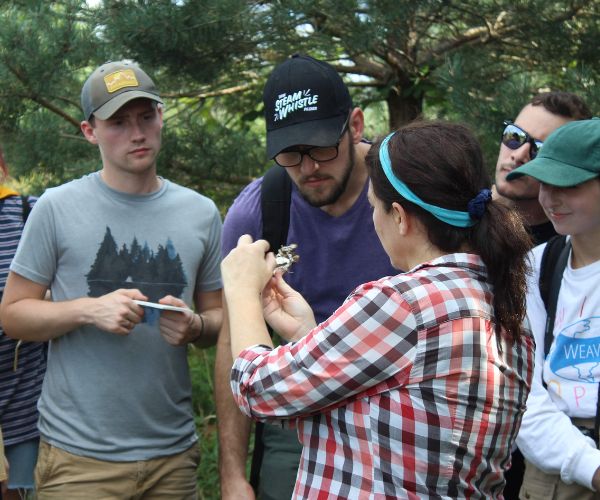Visit Carleton! Book your tour today.
Program Details
How do people interact with nature, and how does this impact the environment? How do societies transform nature? The environment consists of a complex set of human and natural systems of which people are an important, and sometimes dominant, element. Decisions made by individuals, institutions, governments, industries and other actors have the ability to impact the environment in both direct and indirect ways, with consequences for future generations. Understanding the costs and benefits of development and conservation, as well as the underlying values and ethical guidelines for good environmental practice are critical for informed environmental decision-making. It is critical, to both the present and future state of the environment, that dialogue and policy are precautionary, evidence-based, thoughtful and inclusive.
The Environmental Studies program at Carleton University prepares students to be informed, skilled individuals who can participate effectively in the resolution of environmental problems and in the larger environmental debates critical to our future.
Study What Interests You
Gain a solid foundation in Environmental Studies while also pursuing specific areas of interest, such as resource conservation, environmental justice, urban sustainability or environmental policy.
Work Experience
Co-op placements, workplace practica, experiential learning and hands-on training provide valuable research skills and practical experience while you complete the program.
Capital Advantage
While studying at Carleton, you will be steps away from many local and national environmental researchers, organizations, activists and policy makers. You will also benefit from access to specialized national collections of environmental information and of federal government departments, as well as numerous head offices of environmental non-governmental organizations.

Get started in Carleton360 to receive tailored information on our programs, student services and community.

Career Outcomes
Explore your passions, refine new skills and discover the career that’s right for you.
Environmental Studies graduates are working to replace toxic substances, restore rivers, create new environmental laws, educate the next generation, assist in international development, grow organized food, conduct environmental assessments and create more sustainable futures.

Sample Courses
ENST 1000 - Introduction to Environmental and Climate Change Studies
A critical introduction to the scholarly field of environmental studies, with an emphasis on society-environment entanglements. It is designed to engage with environmental and climate change issues. Possible themes include population, scarcity, institutions, commons, risks, hazards, markets, political economy, and the social construction of nature.
HRSJ 3503 - Global Environmental Justice
Overview of critical debates on environmental issues from a global social justice perspective. Topics may include corporate mining, food sovereignty, poverty, economic exploitation, Indigenous cosmologies and environmental justice, militarization and environmental degradation, privatization of water and climate change.
Visit the Undergraduate Calendar to view a comprehensive list of course offerings for this program and discover the exciting things Carleton students are learning in the classroom!
Featured Stories
Read exciting stories from the Faculty of Arts and Social Sciences
The faculty in my program really care about my success and work hard to find hands-on learning experiences out of the classroom. Because of their connections, I’ve been able to participate in exciting international opportunities that are directly related to what I’m learning in my courses.


